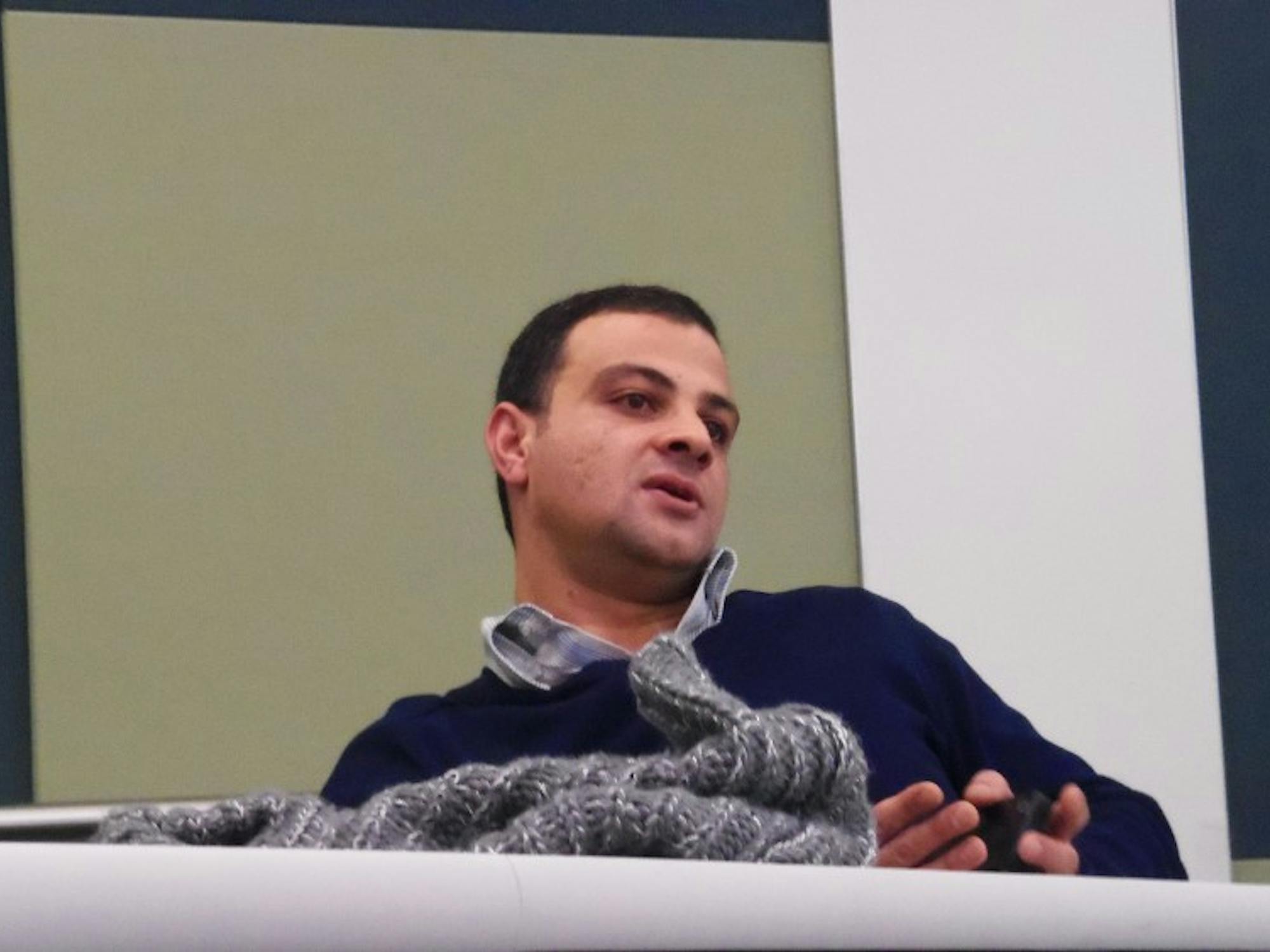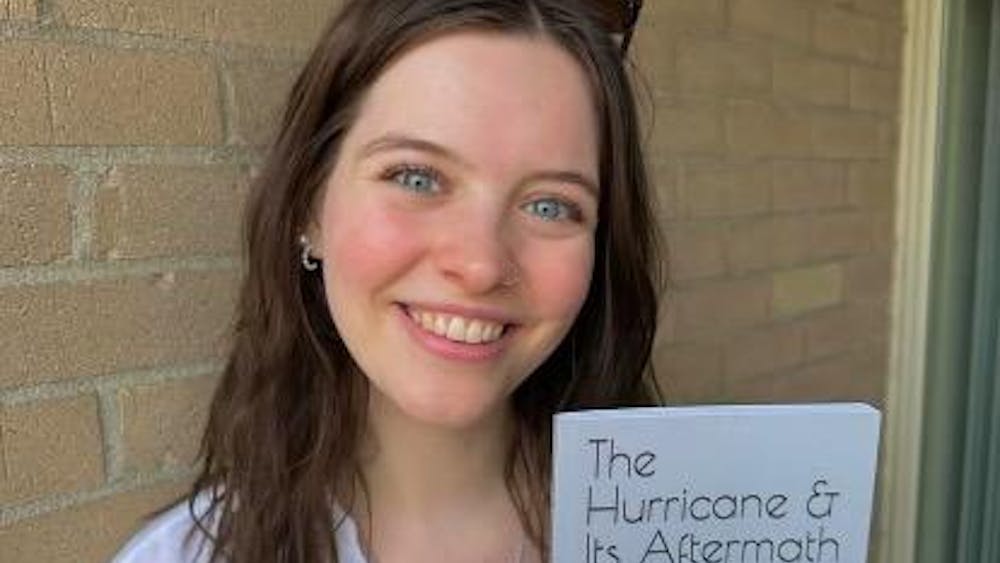Eastern Michigan University’s United Nations Student Alliance organization hosted a screening of the Oscar-nominated documentary, “5 Broken Cameras,” Thursday in Pray-Harrold.
Filmmaker Emad Burnat is a Palestinian resident in the West Bank
and spent five years working on the documentary. The film offers a
background of the non-violent resistance in the village of Bil’in, which is surrounded by Israeli settlements. Burnat recorded the birth of his youngest son, Gibreel, with his first camera which was
later destroyed by a gas grenade.
The film was divided into sections, each focusing around the footage that was captured from the five cameras before they were demolished.
Each camera in the film shows another story from another day, including protests at the wall dividing Israel and the West Bank, the lives of loved ones lost and the destruction of olive trees.
Burnat uses the separate stories to show the personal sense of the villagers and what Gibreel has experienced while growing up.
Brad Arnold, secretary of UNSA, said Richard Stahler-Sholk of the political science department recommended the e-board to watch the film before presenting it.
“I wasn’t shocked because I studied these things. I had a Palestinian-Israeli conflict history class last year as well as Israeli politics and Middle Eastern history,” Arnold said. “It was incredible seeing a first-hand account.”
Arnold said UNSA’s mission statement is to raise awareness on global issues and present them in a fair, objective and balanced way.
“We discovered this documentary and thought it was very powerful and presented an interesting perspective,” Arnold said.
Senior and international affairs major, Brittany Motyka, said the movie was an eye-opener.
“Frankly I just don’t know how to react,” Motyka said. We don’t get to see the whole picture. We’re part of a global community and we have to pay attention to these issues because one way or another they will affect us.”
After watching, Motyka said she noticed the amount of deaths from each side and she hopes Palestine can be a self-determined country in the future.
“I would encourage students to take classes about global perspective since we tend to judge based on our own perspectives,” Motyka said. “Taking international affairs classes will broaden your perspective in so many ways.”
Ihsan Ghadieh, a senior and international affairs major, is from Tulkarm, another city in the West Bank. He said the part of the film that struck him the most was Palestinian children being arrested.
“It does tear up your emotions,” Ghadieh said. “The one thing we got through this film is the side of Israeli’s standing in solidarity to Palestinians trying to fight for their legal rights.
It shows the sentiment from the Israeli side and that they’re working towards justice for Palestinians.”
He said in order to bring peace to the conflict, there has to be dialogue involved in its surrounding countries and established rules and conditions. He said EMU students could even take part in doing so.
“We should start a solidarity movement or interfaith peace buildings that promote peace and promote justice for Palestinians,” Ghadieh said.
Jeffrey Maeder, a senior and international affairs major, said his first reaction after watching the film was helplessness.
“Giving funds to a certain organization can only go so far and writing to your congressman can only go so far,” Maeder said. “The real change has to come from within and we’re not seeing that right now, which is very unfortunate.”
Maeder’s thoughts of how EMU could help raise awareness or gain knowledge on the topic are to avoid major media outlets and instead read a blog by a Palestinian or watch Al Jazeera to get alternate views.
“Our generation is more progressive as a whole,” Maeder said. “Once our generation starts to take off and starts to be the ones to lead the country is when the U.S. policy will really change.”








